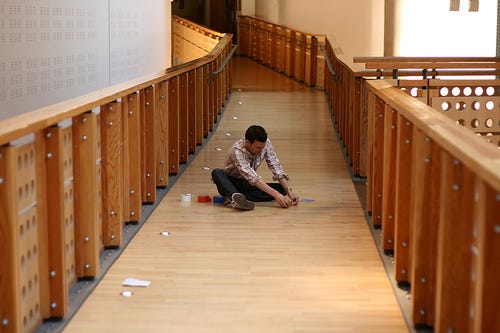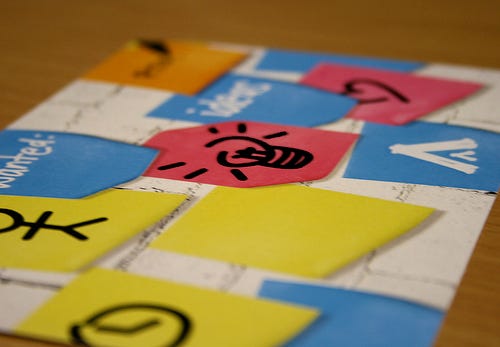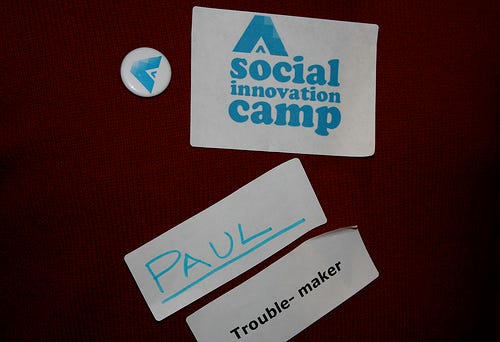I still don’t really know why the Social Innovation Camp format works, but it does. Last weekend we had another great event up in Edinburgh with six teams of fantastic people all trying to take back-of-the-envelope ideas through to working prototypes that could become new social ventures.
The things that struck me this time about the experience were:
- How much people learn about the issues — This tweet from Paolo of the Invisible Ramps team was pretty striking, but a lot of other people told me they’d been surprised how different it was building web or mobile tools when the people who are affected by the problem you’re trying to solve are there with you.
- How it gives people confidence in their own abilities — a few people have said how surprised they were that they could pull off such a big task in the space of a weekend. We also have a pretty good track record of helping people rethink their own careers so they can actually do what we do at a Social Innovation Camp during the rest of the working week too.
- How good some people are at facilitating and project managing in such an intense environment — herding cats in this particular environment is a very niche skill. It’s not like a single meeting but neither is it like longer term project management where you can use more complex tools. Some people are brilliant at it and it’s a joy to watch.
- How difficult it is to do international link ups — this was the first weekend we’ve had where there were two Social Innovation Camps on at the same time — ours in Edinburgh and one in South Korea. I wish we’d been able to have more time chatting about what they were up to but the mixture of timezones and slightly dodgy sound systems and webcams meant we didn’t really get a proper chance. Here’s what they produced though.
Congratulations to all the teams. I had a lot of fun and I hope they did too. And thanks to all the people who enabled us to make it happen — we couldn’t do it without a lot of help.






